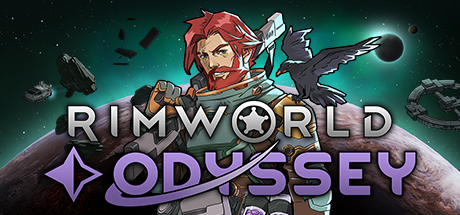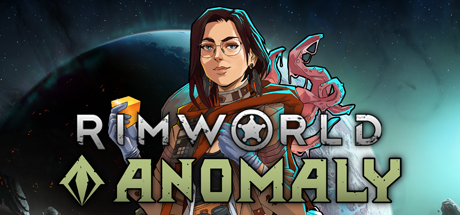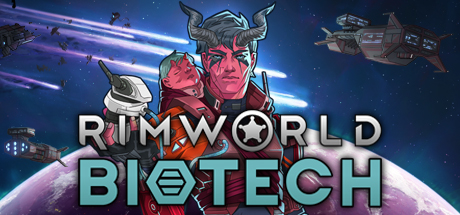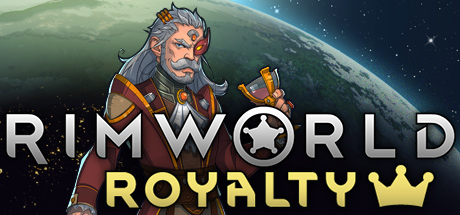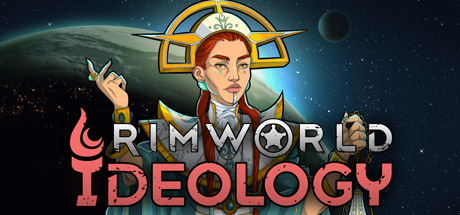RimWorld Expansions:
RimWorld follows three survivors from a crashed space liner as they build a colony on a frontier world at the rim of known space. Inspired by the space western vibe of Firefly, the deep simulation of Dwarf Fortress, and the epic scale of Dune and Warhammer 40,000.
Manage colonists' moods, needs, individual wounds, and illnesses. Engage in small-team tactical gunplay. Fashion structures, weapons, and apparel from metal, wood, stone, cloth, or futuristic materials. Fight pirate raiders, hostile tribes, rampaging animals, giant tunnelling insects and ancient killing machines. Tame and train cute pets, productive farm animals, and deadly attack beasts. Watch colonists develop relationships with family members, lovers, and spouses. Discover a new generated world each time you play. Build colonies in the desert, jungle, tundra, and more. Manage quirky colonists with unique backstories, traits, and skills. Learn to play easily with the help of an intelligent and unobtrusive AI tutor.
For Windows, Mac, Linux. The game is distributed by DRM-free download. RimWorld is developed by Tynan Sylvester and Ludeon Studios, and we've been improving it since its first public release on November 4, 2013.
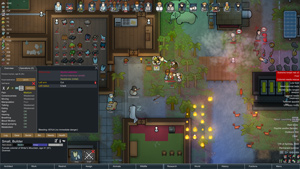
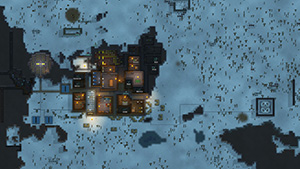
The AI Storyteller
RimWorld is not designed as a competitive strategy game, but as a story generator. It's not about winning and losing - it's about the drama, tragedy, and comedy that goes on in your colony. The game creates events like pirate raids, trader arrivals, and storms. But these events aren't random. RimWorld uses an AI Storyteller (modeled after the AI Director from Left 4 Dead) who analyzes your situation and decides which event she thinks will make the best story.
There are three storytellers to choose from: The carefully-paced Cassandra Classic, the slower-paced, building-oriented Phoebe Chillax, and the totally unpredictable Randy Random.
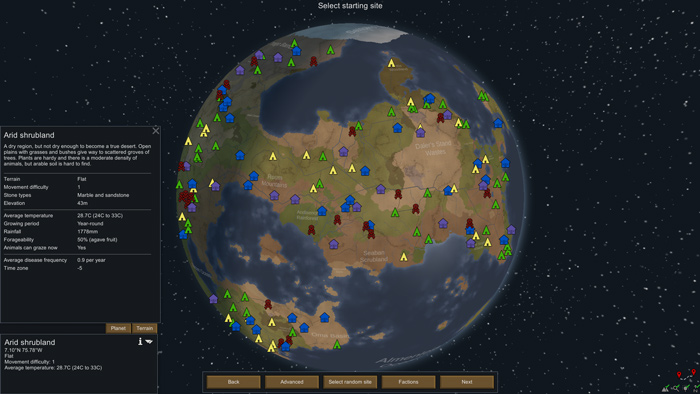
A motley crew
In RimWorld, your colonists are not professional settlers – they’re survivors from a crashed passenger liner. They'll be accountants, homemakers, journalists, cooks, nobles, urchins, and soldiers.
A nobleman will be great at social skills (for recruiting prisoners or negotiating trade prices), but refuse to do physical work. A farm oaf knows how to grow food, but cannot do research. A nerdy scientist is great at research, but cannot do social tasks at all. A genetically-engineered assassin can do nothing but kill – but he does that very well.
Each character has personality traits. Neurotic colonists work faster, but are more stressed and prone to mental breaks. Abrasive characters will interact poorly and harm the mood of those around them. A nudist loves to be naked, while a cannibal gets a rush from consuming human flesh.
Colonists develop - and destroy - relationships. Each has an opinion of the others, which determines whether they'll become lovers, marry, cheat, or fight. Perhaps your two best colonists are happily married - until one of them falls for the dashing surgeon who saved her from a gunshot wound.
You’ll acquire more colonists by taking in refugees, capturing people in combat and turning them to your side, buying them from slave traders, rescuing them, or taking in migrants.
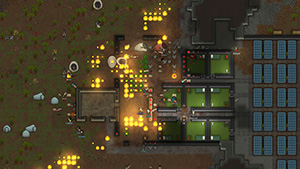
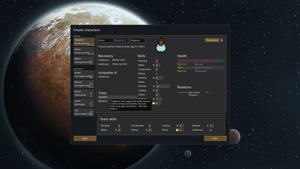
Health modeling
Wounds, infections, prosthetics, and chronic conditions are tracked on each body part and affect characters' capacities. Eye injuries make it hard to shoot or do surgery. Wounded legs slow people down. Hands, brain, mouth, heart, liver, kidneys, stomach, feet, fingers, toes, and more can all be wounded, diseased, or missing, and all have logical in-game effects. And other species have their own body layouts - take off a deer's leg, and it can still run on the other three!
You can repair body parts with prosthetics ranging from primitive to transcendent. A peg leg will get Joe Colonist walking after an unfortunate incident with a rhinoceros, but he'll still be quite slow. Buy an expensive bionic leg from a trader the next year, and Joe becomes a superhuman runner. You can even extract, sell, buy, and transplant internal organs.
Diseases are a serious threat. Open wounds will get infected. Flu and plague can appear anywhere, and tropical rainforest areas are rife with malaria and sleeping sickness. As colonists age, they can develop chronic conditions like cataracts or bad backs.
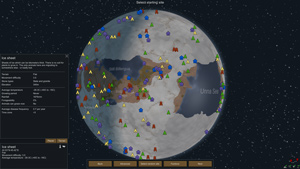
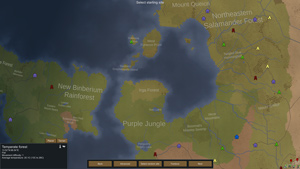
Seasons and temperature
Temperatures are modeled both outdoors and indoors. As the seasons turn, the outdoor temperatures will rise and fall. Plants only grow in some temperatures. When it gets cold, it will snow. People can get hypothermia or heatstroke.
You can control indoor temperatures with heaters and air conditioners to aid survival and comfort, or prevent food from rotting. You can even build deadly temperature traps to cook enemies alive.
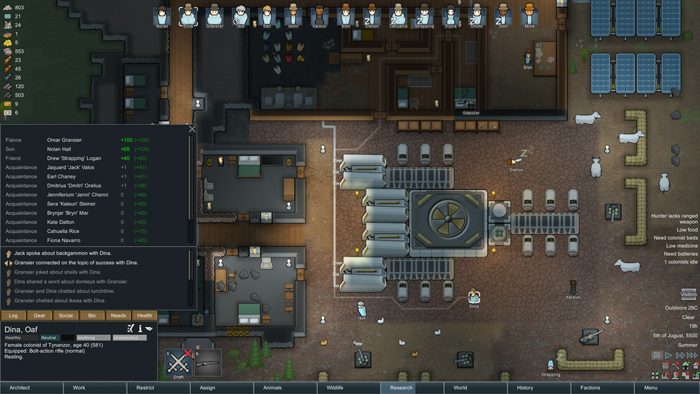
World generation and biomes
The game generates a whole planet from pole to equator. You choose whether to land your crash pods in a cold northern tundra, a parched desert plain, a temperate forest, or a steaming equatorial jungle.
Different areas have different animals, plants, diseases, temperatures, rainfall, mineral resources, and terrain. The challenges of surviving in a disease-infested, choking jungle are very different from those in a parched desert wasteland or a frozen tundra with a two-month growing season.
You can tame and train animals. Lovable pets will cheer up sad colonists. Farm animals can be worked, milked, and sheared. Attack beasts can be released upon your enemies. There are many animals - cats, labrador retrievers, grizzly bears, camels, cougars, chinchillas, chickens, and more, as well as exotic alien-like lifeforms.
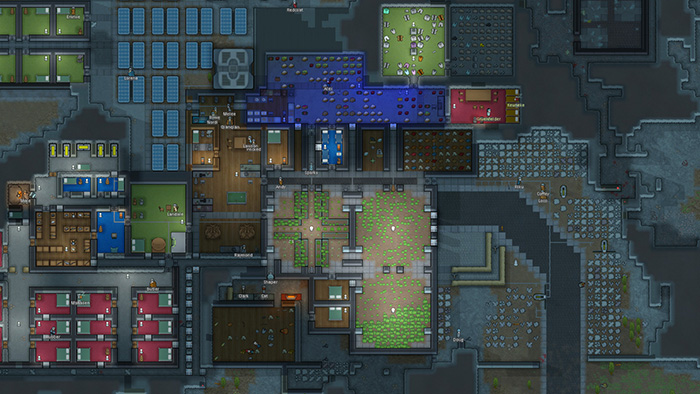
The tactics engine
RimWorld uses an engine that was originally developed to power a tactical combat sim similar to Jagged Alliance 2. This means it has a lot of features designed to make small-team firefights interesting. For example:
- There's a cover system that models low cover and leaning around corners.
- There's a really nuanced algorithm for determining and reporting hit chances based on distance, skill, weapon, lighting, angle, and cover.
- Weapons have some pretty deep stats.
- The AI plans and executes tactical moves like flanking while trying to stay out of the enemy's line of fire. It uses a number of heuristic algorithms to analyze the battlefield and use the space effectively. It works with allies and avoids bunching up.
Because of how important cover and positioning are in gunfights, combat interacts deeply with the colony's layout and structure. Players have to think about how they want to position their constructions to maximum advantage in future firefights, and it's possible to build a wide variety of base configurations for maximum tactical advantage against diverse foes. Combat in general is a lot more interesting than the traditional trading of blows you might expect in a base-building game.
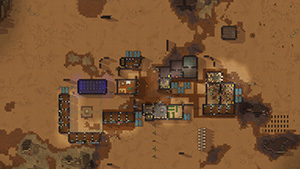
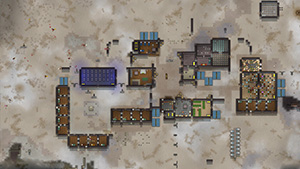
The teaching system
This kind of game can be really hard to learn. So we've created an adaptive teaching system that watches your actions to figure out which parts of the game you understand, and teaches the parts you're missing. If you don't understand a control, the game will notice and help you out unobtrusively. If you already know something, the game won't interrupt you.
RimWorld also uses a notification system to make sure you don't miss anything that needs looking at. If you're low on food, or a colonist is about to go berserk, a message hovers in the corner of the screen informing you of the fact. No more getting annihilated because you missed some little detail. If you get annihilated, it'll be for a totally legitimate reason.
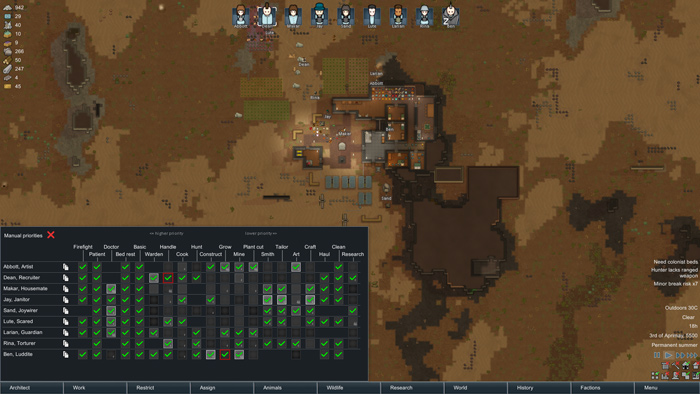
Psychology
People in RimWorld constantly observe their situation and surroundings in order to decide how to feel at any given moment. They respond to hunger and fatigue, witnessing death, disrespectfully unburied corpses, being wounded, being left in darkness, getting packed into cramped environments, sleeping outside or in the same room as others, and many other situations. If a colonist is too stressed, they might lash out or break down.
When a colonist becomes too stressed, they may suffer a "mental break". Some will give up and wander the colony for a time. Some will leave. And some will, in dwarfish fashion, become psychotic and throw a violent tantrum.
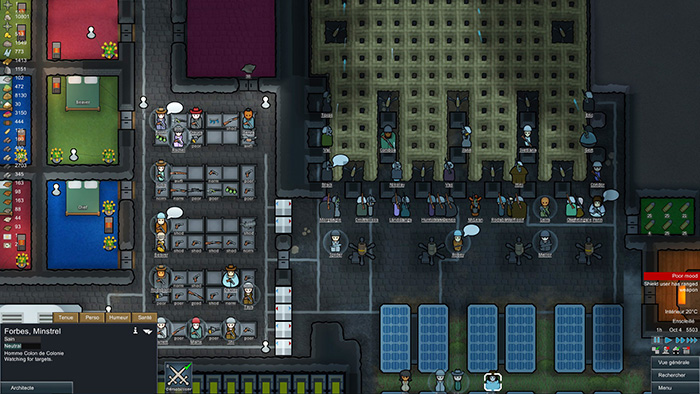
The universe
The flavor of RimWorld is a mix between hard sci-fi and the Old West. It's a rim world at the edge of known space, far from the civilized core worlds. The planet is vast and mostly empty, and there are no strong civilizing authorities anywhere nearby. You're on your own.
The core idea in the RimWorld universe is diversity of human conditions. In this setting, humanity is spread across the galaxy, yet lacks any way of traveling or communicating faster than light. Combined with the fact that stellar civilizations regress (due to war or plague) as often as they progress, this means that someone traveling between stars may end up interacting with people at any level of development, from pre-agricultural tribes to transcendent machine gods.
Your starting colonists in RimWorld are at a technological level in the middle of this span. But you may end up interacting with people at much lower and higher levels, as well as acquiring and using their tools and weapons. In RimWorld, a single fight can involve a bow and arrow, a shotgun, a charged-shot pulse rifle, and a biomechanical killing machine.
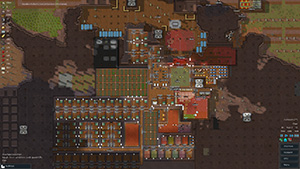
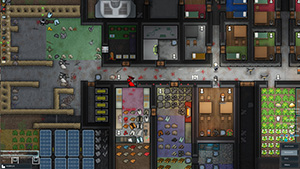
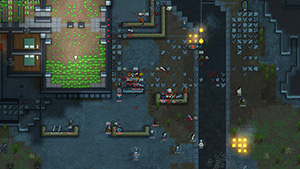
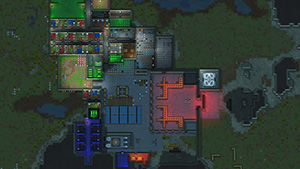
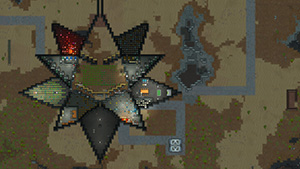
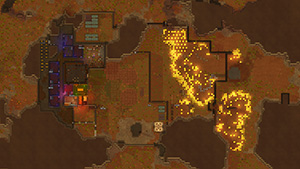
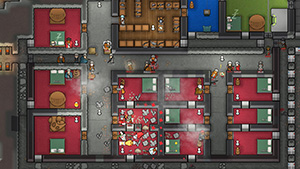
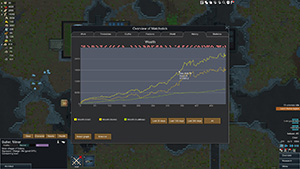
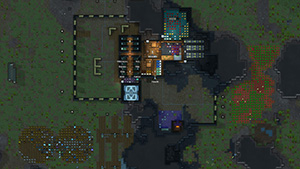
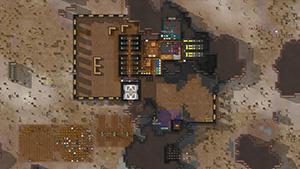
RimWorld Base Game
DRM-Free + Steam Instant Access
Instant access to the game.
Plus, get the Prototype Pack of five early game designs that eventually became RimWorld.
Name in Game Pack
DRM-Free + Steam Instant Access
Put a name (probably yours) into the game and appear as a pirate raider, colonist, traveler, or trader. Players will recruit, command, and fight you for all time! Includes the Full Game Pack.
All versions can be immediately registered on your Steam account through the automated Steam registration system.
Please note that player-created content must follow the creative rewards guidelines.
Multi-language
Includes community-made translations into:
- German
- French
- Italian
- Spanish
- Japanese
- Chinese (simplified)
- Chinese (traditional)
- Danish
- Dutch
- Russian
- Arabic
- Czech
- Estonian
- Finnish
- Hungarian
- Korean
- Norwegian
- Polish
- Portuguese
- Portuguese (Brazilian)
- Romanian
- Slovak
- Swedish
- Turkish
- Ukrainian
